Speakers
- Pascal Lorenz
- Professor, University of Haute Alsace, France.
-
Pascal Lorenz received his M.Sc. (1990) and Ph.D. (1994) from the University of Nancy, France. He is a professor at the University of Haute-Alsace, France, since 1995. He is the author/co-author of 3 books, 3 patents and 200 international publications in refereed journals and conferences. He was Technical Editor of the IEEE Communications Magazine Editorial Board (2000-2006), IEEE Networks Magazine since 2015, IEEE Transactions on Vehicular Technology since 2017, Chair of IEEE ComSoc France (2014-2020), Financial chair of IEEE France (2017-2022), Chair of Vertical Issues in Communication Systems Technical Committee Cluster (2008-2009), Chair of the Communications Systems Integration and Modeling Technical Committee (2003-2009), Chair of the Communications Software Technical Committee (2008-2010) and Chair of the Technical Committee on Information Infrastructure and Networking (2016-2017). He has served as Co-Program Chair of IEEE WCNC'2012 and ICC'2004, Executive Vice-Chair of ICC'2017, TPC Vice Chair of Globecom'2018, Panel sessions co-chair for Globecom'16, tutorial chair of VTC'2013 Spring and WCNC'2010, track chair of PIMRC'2012 and WCNC'2014, symposium Co-Chair at Globecom 2007-2011, Globecom'2019, ICC 2008-2010, ICC'2014 and '2016. He has served as Co-Guest Editor for special issues of IEEE Communications Magazine, Networks Magazine, Wireless Communications Magazine, Telecommunications Systems and LNCS. He is associate Editor for International Journal of Communication Systems (IJCS-Wiley), Journal on Security and Communication Networks (SCN-Wiley) and International Journal of Business Data Communications and Networking, Journal of Network and Computer Applications (JNCA-Elsevier). He is senior member of the IEEE, IARIA fellow and member of many international program committees. He has organized many conferences, chaired several technical sessions and gave tutorials at major international conferences.

- Mohan Lal Kolhe
- Professor, University of Agder, Norway.
-
Mohan Lal Kolhe (Senior Member, IEEE) is currently a Full Professor of smart grid and renewable energy at the Faculty of Engineering and Science, University of Agder, Norway. He is a leading renewable energy technologist with three decades of the academic experience at an international level. He has held various academic positions at prestigious universities, such as University College London, U.K., a branch in Australia; the University of Dundee, U.K.; the University of Jyvaskyla, Finland; and the Hydrogen Research Institute, Trois-Rivières, QC, Canada. He was also a Board Member of the Government of South Australia' s Renewable Energy Board (2009–2011) as an advisor on renewable energy policies. He is an Expert Evaluator of projects for funding at various international research councils, such as European Commission: Erasmus+ Higher Education–International Capacity Building, Royal Society London, U.K., and the Engineering and Physical Sciences Research Council (EPSRC U.K.). He has delivered keynote addresses and expert lectures at many conferences and workshops.

- Philip W. T. Pong
- Associate Professor, New Jersey Institute of Technology, USA.
-
Philip W. T. Pong received a B.Eng. from the University of Hong Kong (HKU) with 1st class honours. Then he obtained a PhD in engineering at the University of Cambridge. He was a postdoctoral researcher at the Magnetic Materials Group at the National Institute of Standards and Technology (NIST) for three years. Currently he is an Associate Professor in the Department of Electrical and Computer Engineering at New Jersey Institute of Technology (NJIT). His research interest focuses on the fault detection, predictive maintenance, and anomaly detection of power grid. He is the Founding Director of the Green Technology Research and Training Laboratory, leading the research and education activities of offshore wind energy at NJIT. Philip Pong is a Fellow of the Institution of Engineering and Technology (FIET), a Fellow of the Institute of Physics (FInstP), a Fellow of the Energy Institute (FEI), a Fellow of the Institute of Materials, Minerals and Mining (FIMMM), a Fellow of the Hong Kong Institution of Engineers (FHKIE), a Fellow of the NANOSMAT Society (FNS), a chartered physicist (CPhys), a chartered engineer (CEng), a chartered energy engineer, a registered professional engineer (R.P.E. in Electrical, Electronics, Energy), and a Senior Member of IEEE (SMIEEE). He serves on the editorial boards for several IEEE and SCI journals.

- Danilo Avola
- Associate Professor, Sapienza University of Rome, Italy.
-
Danilo Avola earned his Ph.D. degree in Molecular and Ultrastructural Imaging from University of L'Aquila, L'Aquila, Italy, in 2014. Since 2021 he is Assistant Professor at the Department of Computer Science of Sapienza University of Rome, where he leads both the Robotics Vision and Artificial Intelligence Laboratory (TITAN Lab) and the Computer Vison Laboratory (VisionLab). In addition, since 2018 he is R&D Senior Engineer at the W•SENSE s.r.l., a spin-off of Sapienza University of Rome, where he leads the Computer Vision Team (CVT), and since 2010 he provides consultation and collaboration to companies engaged in computer science, computer vision, and artificial intelligence research projects. Previously, he was postdoc researcher at the Department of Mathematics, Computer Science and Physics (DMIF), University of Udine, Udine, Italy, and R&D Senior Engineer at the Artificial Vision and Real-Time Systems Laboratory (AVIRES Lab) at the same University. Even before, he was R&D Senior Engineer and Supervisor, earlier, at the Multimodal & Multimedia Laboratory (M&M Lab) of the National Research Council, Rome, Italy, and, later, both at the Pictorial Computing Laboratory (PCL Lab) and at the Artificial Vision Laboratory (AV Lab) of Sapienza University of Rome. Among other awards and prizes, Danilo Avola received, in 2020, the Outstanding Paper Award for IEEE Transactions on Industrial Informatics (TII). Currently, he is Reviewer of top International Journals in Computer Vision, including Pattern Recognition, Pattern Recognition Letters, IEEE Transactions on Industrial Informatics, IEEE Transactions on Industrial Electronics, IEEE Transactions on Circuits and Systems for Video Technology, IEEE Transactions on Human-Machine Systems, and International Journal of Computer Vision; in addition, he is Associate Editor and Guest Editor of different ranked International Journals. His research interests include Computer Vision, Image/Video Processing, Human Computer Interaction, Wi-Fi Signal Processing, EGG Signal Processing, Machine/Deep Learning, Multimodal Systems, Pattern Recognition, Event/Action/Affect Recognition, Action, Scene Understanding, Body Language and Face Expression Interpretation, Robotics (UAVs, AUVs, ROVs, Humanoids), and has published around 100 papers on these topics. Since 2011, Danilo Avola is member of IAPR, CVPL, and IEEE.

- Zhiwei Gao
- Reader, University of Northumbria, UK.
-
Zhiwei Gao (Fellow, IEEE) received the B.Eng. degree in industrial automation and the M.Eng. and Ph.D. degrees in systems engineering from Tianjin University, Tianjin, China, in 1987, 1993, and 1996, respectively.,His research interests include estimation and filtering, diagnosis and control, digital twins, power electronics, wind energy systems, electric vehicles, and offshore energy.,Dr. Gao was the Associate Editor of IEEE Transactions on Automatic Control, IEEE Transactions on Control Systems Technology, IEEE Transactions on Industrial Informatics, IEEE Transactions on Systems Man and Cybernetics: Systems, and IEEE Transactions on Industrial Electronics, and the Senior Editor of IEEE Access. He is also the Associate Editor of ISA Transactions (Elsevier) and Journal of Ambient and Humanized Computing (Springer), and the Editorial Member of Renewable Energy (Elsevier). He is the Fellow of AAIA.
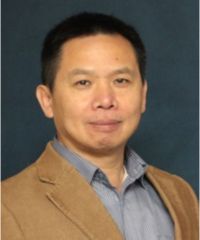
- M. A. Jabbar
- Professor and Head of the Department CSE(AI&ML), Vardhaman College of Engineering, India.
-
Dr. M. A. Jabbar is a Professor and Head of the Department CSE(AI&ML), Vardhaman College of Engineering, Hyderabad, and Telangana, India. He obtained Doctor of Philosophy (Ph.D.) from JNTUH, Hyderabad, and Telangana, India. He has been teaching for more than 20 years. His research interests include Artificial Intelligence, Big Data Analytics, Bio-Informatics, Cyber Security, Machine Learning, Attack Graphs, and Intrusion Detection Systems. He published more than 60 papers in various journals and conferences. He served as a technical committee member for more than 70 international conferences. He edited 7 books with various leading publishers like Elsevier, springer, and Taylor and Francis. He is a Senior Member of IEEE and Senior member ACM, Governing body member, Internet Society India Hyderabad Chapter. Dr M. A. Jabbar Received best faculty researcher award from CSI Mumbai and Fossee Labs, IIT Bombay. He has been awarded with prestigious IEEE CS Distinguished contributor. Presently he is acting as a Chair, IEEE CS chapter, Hyderabad Section.
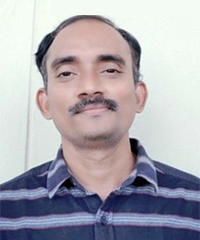
- Biplob Ray
- Associate Professor, Central Queensland University, Australia.
-
Biplob Ray, IEEE Senior Member, is an Associate Professor at CQUniversity. Dr. Ray holds a PhD in Contemporary Network Security from Deakin University, a Graduate Certificate in Tertiary Education, and a Master of Information Technology from the University of Ballarat, as well as a Bachelor of Science in Computer Engineering from AMA University. With over eight years at CQUniversity, he currently leads as a Discipline Lead and CML-NET Cluster Lead in Emerging Technologies. He has previously served as a Senior Lecturer and CIS Research Group Lead and began his tenure as a Lecturer in ICT. He is highly interested in multidisciplinary research with core interests in secure communication protocols of Cyber-Physical systems, Artificial Intelligence (AI), and the Internet of Things (IoT). He is the Treasurer of IEEE Victorian Section, Committee member of IEEE Victoria section, Fonding Co-Chair of IEEE Vic. IoT community, Certified Professional (CP) by Australian Computer Society (ACS), Senior Member of Australian Computer Society (ACS), Member of Golden Key International Honour Society, Member of IEEE and IEEE Cybersecurity Initiative (CYBSI) group, and Member of Academic Leadership Committee, CQUniversity, Cairns campus. He was the editorial board member of International Journal of Hybrid Intelligence published by Inderscience. And he also been the Reviewer of Various Elsevier and IEEE journals (Computers & Electrical Engineering, Ad Hoc Networks, IEEE Transactions on Industrial Informatics and so on).
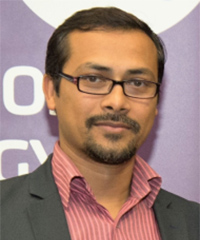
- Siddhartha Bhattacharyya
- Professor, Christ University, India.
-
Dr. Siddhartha Bhattacharyya (Senior Member, IEEE) completed PhD in Computer Science and Engineering from Jadavpur University, India in 2008. He has been appointed as the ACM Distinguished Speaker for the tenure 2018-2020. He is currently serving as a Professor in the Department of Computer Science and Engineering of Christ University, Bangalore. He is a co-author of 5 books and the co-editor of 54 books and has more than 280 research publications in international journals and conference proceedings to his credit. He is the Associate Editor of several reputed journals including Applied Soft Computing, IEEE Access, Evolutionary Intelligence and IET Quantum Communications. He is the editor of International Journal of Pattern Recognition Research and the founding Editor in Chief of International Journal of Hybrid Intelligence, Inderscience. Dr. Bhattacharyya is a life fellow of Optical Society of India (OSI), India, life fellow of International Society of Research and Development (ISRD), UK, a fellow of Institute of Electronics and Telecommunication Engineers (IETE), India and a fellow of Institution of Engineers (IEI), India. He is also a senior member of International Institute of Engineering and Technology (IETI), Hong Kong and Association for Computing Machinery (ACM), USA. He is a life member of Cryptology Research Society of India (CRSI), Computer Society of India (CSI), Indian Society for Technical Education (ISTE), Indian Unit for Pattern Recognition and Artificial Intelligence (IUPRAI). He is a member of Institution of Engineering and Technology (IET), UK, International Rough Set Society, International Association for Engineers (IAENG), Hong Kong, Computer Science Teachers Association (CSTA), USA, International Association of Academicians, Scholars, Scientists and Engineers (IAASSE), USA, The International Society of Service Innovation Professionals (ISSIP) and The Society of Digital Information and Wireless Communications (SDIWC). He is also a certified Chartered Engineer of Institution of Engineers (IEI), India.
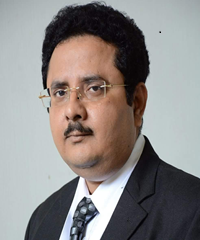
- Umesh Chandra Pati
- Professor, National Institute of Technology, India.
-
Dr. Umesh C. Pati is a Full Professor at the Department of Electronics and Communication Engineering, National Institute of Technology (NIT), Rourkela. He has obtained his B.Tech. Degree in Electrical Engineering from National Institute of Technology (NIT), Rourkela, Odisha. He received both M.Tech. and Ph.D. degrees in Electrical Engineering with specialization in Instrumentation and Image Processing, respectively, from the Indian Institute of Technology (IIT), Kharagpur. He is currently serving as Chairperson, International Students Cell, NIT Rourkela. He has also served as Head, Career Development Center, NIT Rourkela for three years.
His current areas of interest are Image/Video Processing, Computer Vision, Artificial Intelligence, Medical Imaging, Internet of Things (IoT), Industrial Automation, and Instrumentation Systems. He has authored/edited two books and published more than 125 articles in the peer-reviewed international journals as well as conference proceedings. He has served as a reviewer in a wide range of reputed international journals and conferences. He has delivered a number of Keynote/Invited Talks at various International/National platforms. He has also guest-edited Special Issues of Cognitive Neurodynamics and the International Journal of Signal and Imaging System Engineering. Dr. Pati has filed 3 Indian patents. Besides other sponsored projects, he is currently associated with a high-value IMPRINT project, “Intelligent Surveillance Data Retriever (ISDR) for Smart City Applications,” which is an initiative of the Ministry of Education and Ministry of Housing and Urban Affairs, Govt. of India.
He has visited countries like the USA, Italy, Austria, Australia, Singapore, Mauritius, Bangladesh, Nepal, etc., in connection with research collaboration and paper presentations. He was also an academic visitor to the Department of Electrical and Computer Engineering, San Diego State University, USA, and the Institute for Automation, University of Leoben, Austria. He is a Senior member of IEEE, Fellow of The Institution of Engineers (India), Fellow of The Institution of Electronics and Telecommunication Engineers (IETE), and life member of various professional bodies like MIR Labs (USA), The Indian Society for Technical Education, Instrument Society of India, Computer Society of India, and Odisha Bigyan Academy. His biography has been included in the 32nd edition of MARQUIS Who’s Who in the World 2015. He is also recipient of Torchbearer of Education Award 2020 by Coding Ninjas.
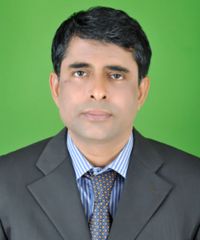
- Madihah Mohd Saudi
- Professor, Universiti Sains Islam Malaysia (USIM), Malaysia.
-
Madihah Mohd Saudi is a Professor at Faculty of Science and Technology (FST), Universiti Sains Islam Malaysia (USIM), Malaysia. She is an honorary Research Fellow at the University of Bristol Cyber Security Group(CSG),United Kingdom and a Visiting Professor at a few international universities at Uzbezkistan and Indonesia. Formerly as Chief Information Officer(CIO) at USIM, she is also a Senior Member of the IEEE Computer Society, International Association of Engineers and the International Association of Computer Science and Information Technology and as Deputy Secretary for Cyber Akademia Malaysia (CSAM). She has more than 20 years of research experience in the fields of cybersecurity and machine learning. She has produced numerous books, ICT/security strategic plans, journal papers, and industry and keynote speakers. Her research interests are malware, mobile security and machine learning.
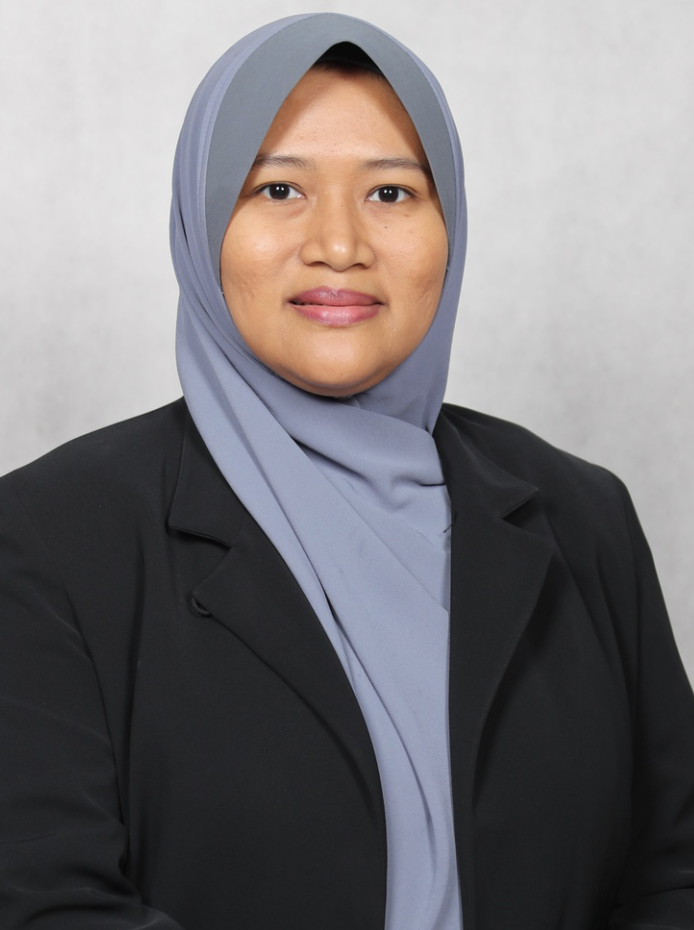
- Arup Neogi
- Professor, University of Electronic Science and Technology of China, China.
-
Dr. Arup Neogi is an outstanding professor at the University of Electronic Science and Technology of China and a researcher at Optica (formerly known as the American Optical Society). Since 2014, he has had long-term cooperation with the Institute of Fundamental and Frontier Sciences (IFFS) at University of Electronic Science and Technology of China (UESTC), and he officially joined as a full-time professor in 2022. In the past 25 years, his over 210 peer-reviewed articles, 1 book, 5 book chapters, and 10 patents have been published in the fields of photonics and phononics, with over 4500 citations. His research achievements have received many outstanding honors, awards, and honors in the fields of nanophotonics and metamaterials, such as invited professors and renowned scholarships, showcasing his extraordinary global influence. The research activity aims to explore the application of physical principles, develop new equipment to overcome existing technical problems, and provide high-performance and high functionality for practical applications. He has contributed to the development of nanostructured photonic devices, including optical emitters/modulators, as well as to the establishment of new fields inspired by optics for phonon devices. Received the "2022 Sichuan Province International Science and Technology Cooperation Award" and was selected as the innovative leading talent project of the "Tianfu Emei Plan" in Sichuan Province in 2022. Their team has proposed for the first time an optical implementation method for acoustic non reciprocity phenomena in China, and has been approved as a key special project of the National Key R&D Program "Intergovernmental International Science and Technology Innovation Cooperation".
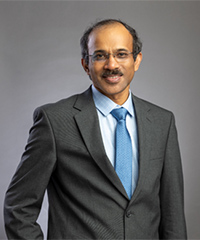
- Anand Nayyar
- Professor, Duy Tan University, Vietnam.
-
Dr. Anand Nayyar received Ph.D (Computer Science) from Desh Bhagat University in 2017 in the area of Wireless Sensor Networks, Swarm Intelligence and Network Simulation. He is currently working in School of Computer Science-Duy Tan University, Da Nang, Vietnam as Professor, Scientist, Vice-Chairman (Research) and Director- IoT and Intelligent Systems Lab. A Certified Professional with 125+ Professional certificates from CISCO, Microsoft, Amazon, EC-Council, Oracle, Google, Beingcert, EXIN, GAQM, Cyberoam and many more. Published more than 150+ Research Papers in various High-Quality ISI-SCI/SCIE/SSCI Impact Factor Journals cum Scopus/ESCI indexed Journals, 70+ Papers in International Conferences indexed with Springer, IEEE and ACM Digital Library, 40+ Book Chapters in various SCOPUS/WEB OF SCIENCE Indexed Books with Springer, CRC Press, Wiley, IET, Elsevier with Citations: 8500+, H-Index: 48 and I-Index: 167. Member of more than 60+ Associations as Senior and Life Member including IEEE, ACM. He has authored/co-authored cum Edited 40+ Books of Computer Science. Associated with more than 500+ International Conferences as Programme Committee/Chair/Advisory Board/Review Board member. He has 18 Australian Patents, 4 German Patents, 2 Japanese Patents, 11 Indian Design cum Utility Patents, 1 USA Patent, 3 Indian Copyrights and 2 Canadian Copyrights to his credit in the area of Wireless Communications, Artificial Intelligence, Cloud Computing, IoT and Image Processing. Awarded 39 Awards for Teaching and Research—Young Scientist, Best Scientist, Best Senior Scientist, Asia Top 50 Academicians and Researchers, Young Researcher Award, Outstanding Researcher Award, Excellence in Teaching, Best Senior Scientist Award, DTU Best Professor and Researcher Award- 2019, 2020-2021, 2022 and many more. He is listed in Top 2% Scientists as per Stanford University (2020, 2021, 2022). He is acting as Associate Editor for Wireless Networks (Springer), Computer Communications (Elsevier), International Journal of Sensor Networks (IJSNET) (Inderscience), Frontiers in Computer Science, PeerJ Computer Science, Human Centric Computing and Information Sciences (HCIS), Tech Science Press- CSSE, IASC, IET-Quantum Communications, IET Wireless Sensor Systems, IET Networks, IJDST, IJISP, IJCINI, IJGC, IJSIR. He is acting as Editor-in-Chief of IGI-Global, USA Journal titled “International Journal of Smart Vehicles and Smart Transportation (IJSVST)”. He has reviewed more than 2500+ Articles for diverse Web of Science and Scopus Indexed Journals. He is currently researching in the area of Wireless Sensor Networks, Internet of Things, Swarm Intelligence, Cloud Computing, Artificial Intelligence, Drones, Blockchain, Cyber Security, Healthcare Informatics, Big Data and Wireless Communications.

- Mohamed-Slim Alouini
- Professor, King Abdullah University of Science & Technology, Saudi Arabia.
-
Mohamed-Slim Alouini was born in Tunis, Tunisia. He received the Ph.D. degree in Electrical Engineering from the California Institute of Technology (Caltech) in 1998. He served as a faculty member at the University of Minnesota then in the Texas A&M University at Qatar before joining in 2009 the King Abdullah University of Science and Technology (KAUST) where he is now the Al-Khawarizmi Distinguished Professor of Electrical and Computer Engineering. He is currently particularly interested in addressing the technical challenges associated with the uneven distribution, access to, and use ofinformation and communication technologies in rural, low-income, disaster, and/or hard-to-reach areas. Professor Alouini has published numerous conference and journal papers and co-authored the textbook Digital Communication over Fading Channels, published by Wiley Interscience. A former editor of IEEE Transactions on Communications and IEEE Transactions on Wireless Communication, he also served as an editor for IEEE Transactions on Mobile Computing and the Wireless Communications and Mobile Computing journal. He was also a series editor for the IEEE Communication Magazine's Optical Communication and Networks Special Series and the founding field chief editor for the Frontiers in Communications and Networks journal. He is now the Founding Editor-in-Chief for the Nature Partnership Journal (NPJ) on Wireless Technologies (since 2025) and an editor for the IEEE Transactions on Aerospace and Electronics Systems (since 2022). Prof. Alouini is a Fellow of the IEEE and OPTICA (Formerly the Optical Society of America (OSA)). And he has been an IEEE Distinguished Lecturer for the IEEE Communication Society (2016-2017), the IEEE Vehicular Technology Society (2018-2022), the IEEE Aerospace and Electronic Systems Society (2023-2024), and the IEEE Photonics Society (2025).
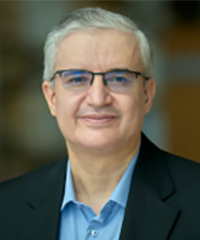
- Chinmay Chakraborty
- Associate Professor, Birla Institute of Technology, India.
-
Dr. Chinmay Chakraborty, IEEE Senior Member, has worked as a Sr. Lecturer at the ICFAI University in Tripura, India, and as a Research Consultant in the Coal India project at Industrial Engineering & Management, IIT Kharagpur. He has also served as the Project Coordinator of the Telecommunication Convergence Switch project under the Indo-US joint initiative. In addition, he has worked as a Network Engineer in System Administration at MISPL, India. He is currently an A/Professor at Birla Institute of Technology, Mesra, India. Dr. Chakraborty has a strong publication record with over 200 articles in peer-reviewed international journals, conferences, and book chapters. He has also authored 25+ books, obtained 6+ patents, and edited 20+ special issues in the field. He serves as an Editorial Board Member for various journals and conferences and holds positions as Deputy EiC of IEEE TCEL, an Associate Editor for IEEE TII, IEEE ISJ, IECE, IJEECS, Journal of Biomedical and Biological Sciences, HCIS, Springer BMC Bioinformatics, JIFS, IJECD, Int. His contributions have also been recognized with the Outstanding Researcher Award and Outstanding Paper in the 2022 Emerald Literati Awards. He has secured a top 2% position among global scientists in "Artificial Intelligence and Image Processing" by Stanford University in both 2021-24. He has also received a Marie Skłodowska-Curie Actions Europe Fellowship Grant, Horizon 2023, and has been nominated as a "Prominent Young Researcher" at the National Frontiers of Engineering Symposium, National Academy of Engineering (INAE), SERB, Govt. of India.
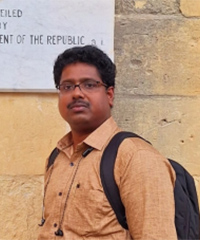
- Mohd. Faisal Khan
- Associate Professor, Aligarh Muslim University, India.
-
Dr. Khan has more than 19 years of teaching and research experience. He is also holding the charge of Training and Placement Officer, University Polytechnic. His research areas of interest are in the fields of Electrical Machines, Standalone / Grid connected Wind Energy Conversion Systems, Multi-Phase Electrical Machines and Drives, Matlab/Simulink based analysis of Electrical Machines and related fields. Dr. Khan has published in IEEE Transactions, WILEY Transactions, JESTECH and Energy Reports Journals of ELSEVIER, and IJPEC of INDERSCIENCE etc. He also has an Indian patent for a technology on design and development of Multi-phase self excited induction generators. His research papers have been presented at a number of flagship IEEE conferences most prominent being IEEE-PEDES-2012, 2014 and 2016; IEEE-INDICON 2013 (IN INDIA) and abroad such as IEEE-IECON 2012 (US), Tencon-Spring 2013 (Australia) and IEEE-CEAT 2013 (Malaysia). His cumulative research contributions in IEEE Xplore amount to more than one and a half dozen. He has delivered more than 2 dozen talks at various international and national level conferences, invited lectures etc. He regularly reviews manuscripts for IEEE Transactions, Wiley, IET, Taylor and Francis and Springer publications. His research contributions have been recognized at national and international level events by a number of awards bestowed on him.
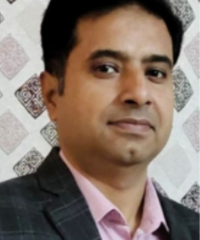
- Pooja Singh
- Assistant Professor, SIES Graduate School of Technology, Navi Mumbai, India.
-
Dr. Pooja Singh received his Ph.D. degree from Indian Institute of Technology (Banaras Hindu University). She has experience of 21 years in world's leading CMMi-5 software multinational companies, research organizations and academic institutes. She is currently Assistant Professor in SIES Graduate School of Technology, Navi Mumbai, and has distinction of working in the field of Image processing, Artificial intelligence, Mathematical Modelling, reliability engineering, safety engineering and other mathematical sciences for to solve the various technical challenges in Nuclear Power Plants. She has an illustrious career and succeeded in several critical jobs assigned to him in his illustrious career, though, each of them was challenging. Her assignments over the years range from design, development, testing, IV&V, related research and site validation of the safety critical computer based systems of Indian Nuclear Power Plants. She has publishe d several research papers in journals of high impact factor like IEEE Transactions, IEEE Computer, ACM, Elsevier, Quality & Reliability International, etc . She is recipient of many awards like prestigious IEEE K. Shankar award, publication award, etc . She has also received IEEE Woman Technologist award. She is a reviewer of several SCI indexed journals of high impact factor, including 14 different IEEE Transactions. She is a life member of Indian Nuclear Society . She is a Senior Member of IEEE. She has been invited for keynote speeches, and talks in many international IEEE and other conferences. She is a member of editorial board of many reputed journals and guest lead editor of many special issues. She is supervising many PhD students of different reputed institutes. She is actively involved in formation of interdisciplinary Centre of Dependability Engineering at IIT (BHU). She has several international research collaborations. Her research interests are in the area of mathematical modelling, image processing, artificial intelligence, reliability, system design, safety and security of safety critical computer based systems. So far she has completed many projects of Department of Atomic Energy, Government of India and Department of Science and Technology, India.
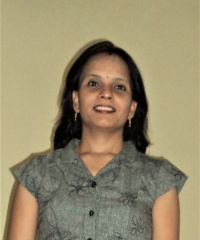
Latest News
Announcements
Supported By







TECHNICALLY CO-SPONSORED BY


